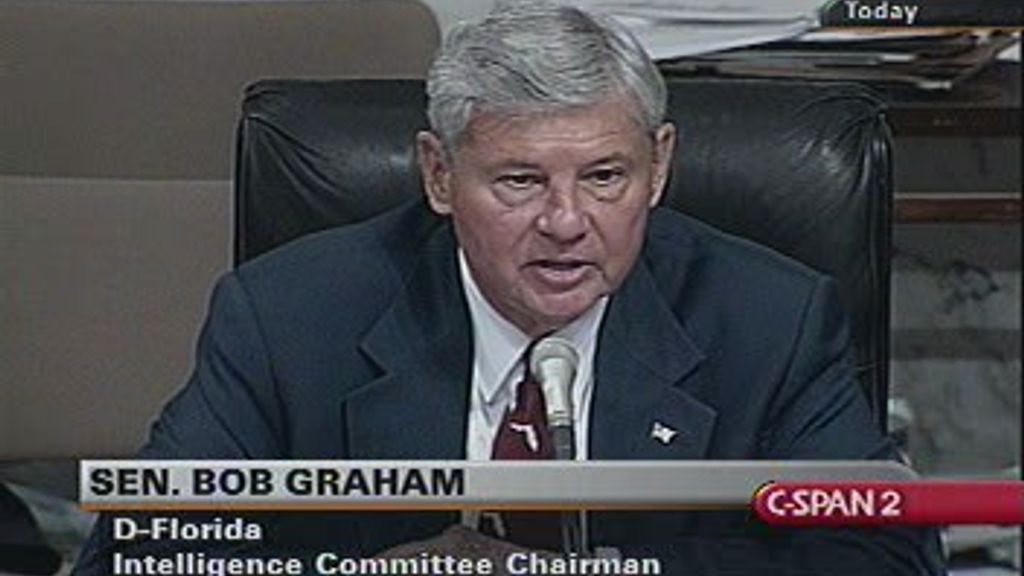
Snapshot
Our snapshot of 9/11 is a classroom-friendly of our Portrait in Oversight on the same topic. Each of our snapshots is a four-page summary of the historical event. Included in the download, you’ll find:
- Comprehension questions
- Discussion questions
- Answer key
- Audio recording of the snapshot
- Spanish translation of all materials

The Joint Inquiry leadership strove for consensus. It worked because they were respectful of each other, they were willing to work together to reach agreement even on difficult issues, and they understood, in the wake of the attacks, how important what they were doing was to the country.
Eleanor Hill, staff director of the Joint Inquiry
On September 11, 2001, the terrorist group Al-Qaida hijacked four commercial airplanes and carried out attacks on the World Trade Center in New York by two planes, and the Pentagon in Washington, D.C. with a third. While the fourth plane crashed in a field in Pennsylvania, the terrorist attack resulted in the deaths of 3,025 people, making it the deadliest attack of its kind on American soil, and led to the first-ever joint investigation by the House and Senate intelligence committees.
The Joint Inquiry into Intelligence Community Activities Before and After the Terrorist Attacks of September 11, 2001 was formed to investigate the intelligence failures that led to the attacks. Led by Democratic Senator Bob Graham and Republican Representative Porter Goss, the so-called “Big 4” leadership team was rounded out with Republican Senator Richard Shelby and Democratic Representative Nancy Pelosi. The deliberately bipartisan inquiry aimed to figure out what the intelligence community knew or should have known prior to 9/11, identify systemic problems, and recommend improvements to prevent future attacks. It was decided from the outset that all decisions would be unanimous.
Content Standards
MI USHG – 9.2.2 9/11 and Responses to Terrorism – analyze how the attacks on 9/11 and the response to terrorism have altered American domestic and international policies.
Once you fill out this form, you will be redirected to our download page. Make sure you save the download page so that you continue to have access to our materials!
If you have already filled out the download form, click here.